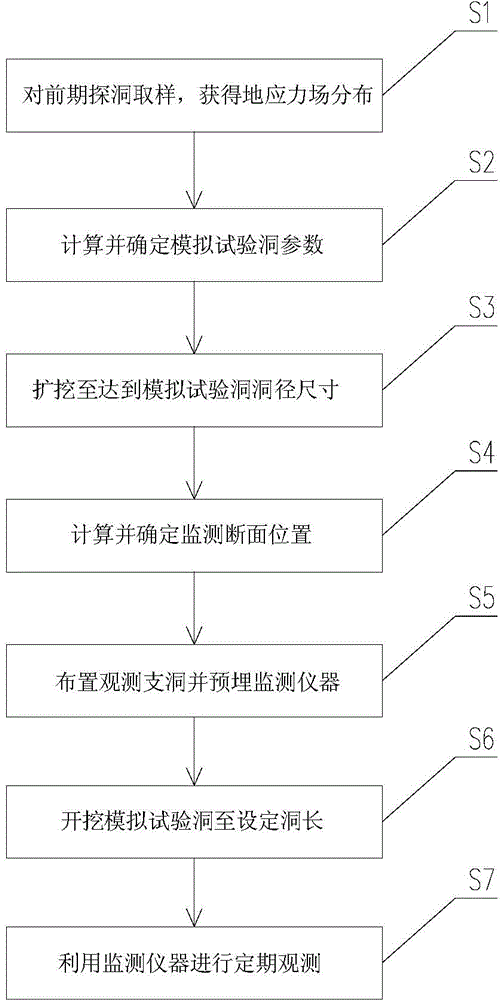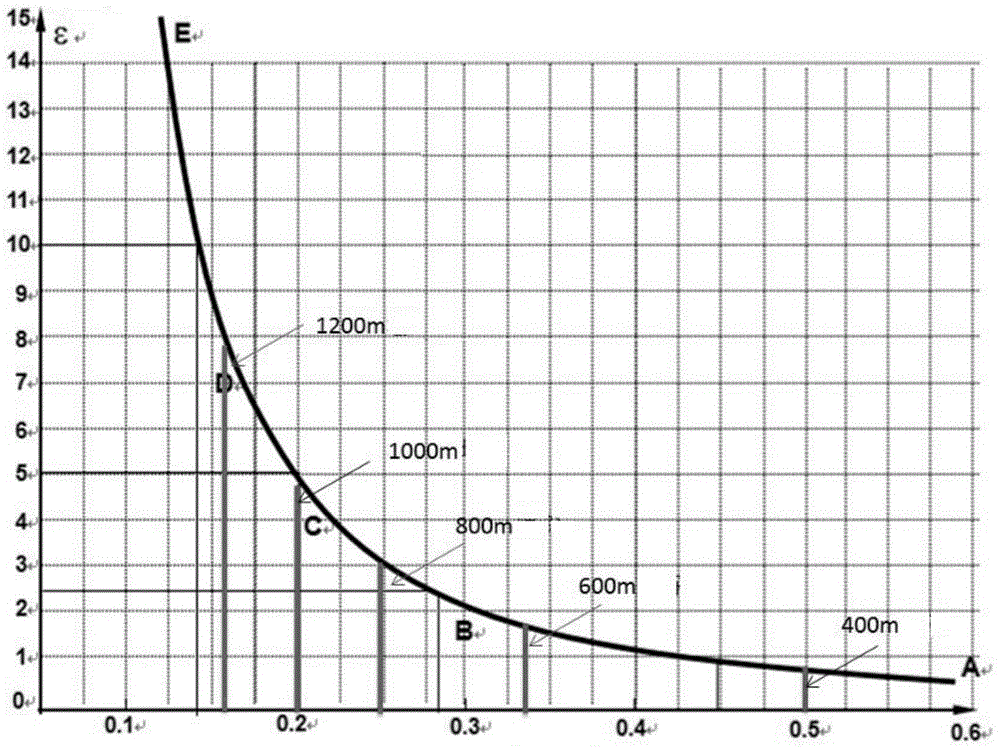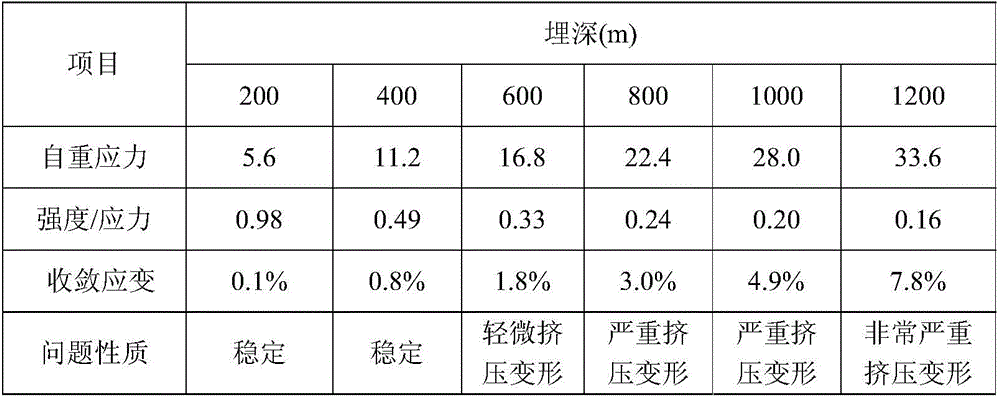In-situ test method and structure for deeply-buried soft-rock tunnel
A technology of in-situ testing and tunneling, which is applied in the direction of earthwork drilling, mining equipment, mining equipment, etc., can solve the problems of high cost, low strength, damage, etc., to improve depth and reliability, reduce construction difficulty, and save construction the effect of time
- Summary
- Abstract
- Description
- Claims
- Application Information
AI Technical Summary
Problems solved by technology
Method used
Image
Examples
Embodiment 1
[0034] Example 1. In-situ test method of deep-buried soft rock tunnel.
[0035] Reference attached Figure 1-7 .
[0036] The in-situ testing method of the deep-buried soft rock tunnel of the present invention includes the following steps:
[0037] S1: Take a sample of the early-stage exploration cave 1, conduct an indoor rock mechanics test, and conduct a ground stress test to obtain the distribution characteristics of the ground stress field, and provide basic data for the subsequent analysis.
[0038] S2: Calculate and determine the parameters of the simulated test tunnel 2, which include the buried depth, axis direction, hole diameter D, section shape and hole length H.
[0039] As mentioned in the background art, the excavation of a simulated test tunnel with the same size as the original tunnel is not only expensive, but also difficult to meet the time requirements of the project. If the size is too small, the surrounding rock failure under high stress conditions cannot be fully e...
Embodiment 2
[0062] Example 2. In-situ test structure.
[0063] Reference attached Figure 7-8 .
[0064] The in-situ test structure of the present invention can be obtained by excavating according to the in-situ test method of Embodiment 1. The in-situ test structure includes simulated test tunnel 2, preliminary exploration tunnel 1, and observation branch tunnel 5.
[0065] The simulation test tunnel 2 is arranged behind the preliminary exploration tunnel 1 of the soft rock tunnel. The buried depth, axis direction, hole diameter, section shape and tunnel length of the simulation test tunnel 2 can be pre-calculated by the in-situ test method of Example 1. get.
[0066] The axis of the simulated test tunnel 2 is perpendicular to the direction of the maximum principal stress of the deep-buried soft rock. Generally, in order to ensure the stability of the surrounding rock in a deep-buried tunnel, the tunnel axis should be selected as consistent as possible with the direction of the maximum princip...
PUM
 Login to View More
Login to View More Abstract
Description
Claims
Application Information
 Login to View More
Login to View More - R&D
- Intellectual Property
- Life Sciences
- Materials
- Tech Scout
- Unparalleled Data Quality
- Higher Quality Content
- 60% Fewer Hallucinations
Browse by: Latest US Patents, China's latest patents, Technical Efficacy Thesaurus, Application Domain, Technology Topic, Popular Technical Reports.
© 2025 PatSnap. All rights reserved.Legal|Privacy policy|Modern Slavery Act Transparency Statement|Sitemap|About US| Contact US: help@patsnap.com



